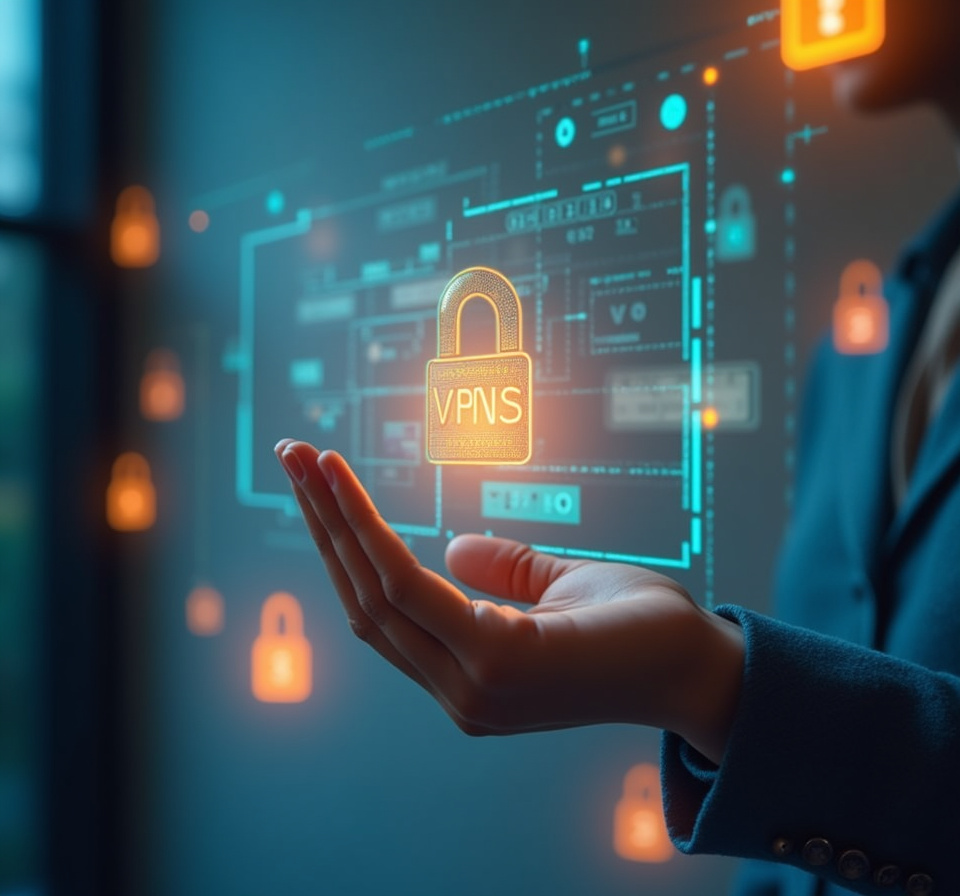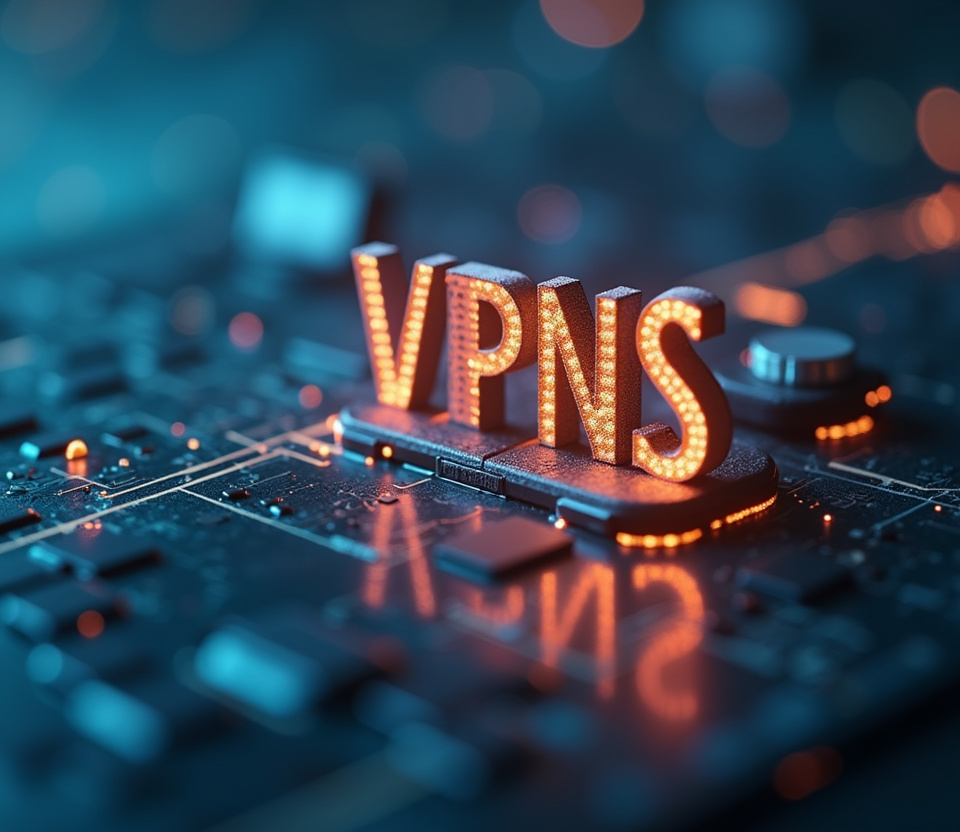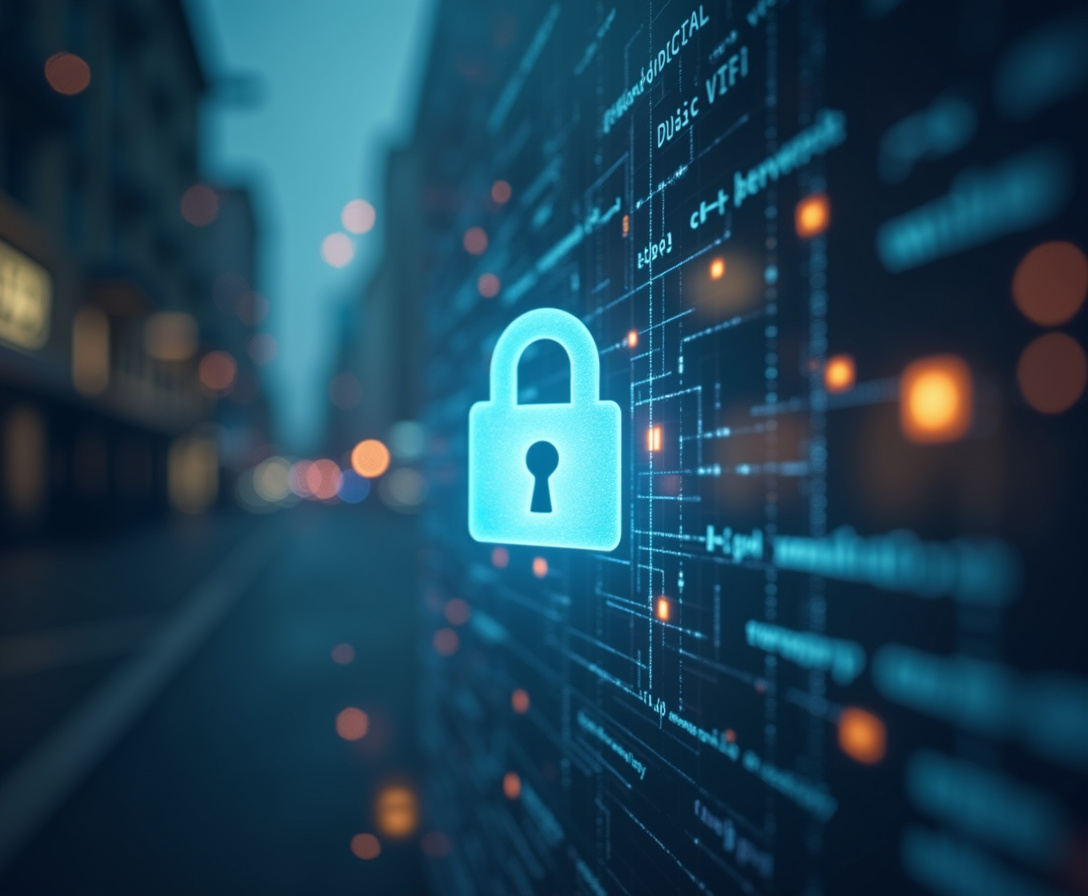VPNs for Hotel Chains: Ensuring Centralized Data Security

Table of Contents
hotel chain VPN
In the high-stakes world of hospitality, hotel chains are entrusted with a treasure trove of sensitive information, ranging from guest personal details and financial data to proprietary operational strategies and internal communications. The sheer volume and variety of this information, coupled with the geographically dispersed nature of many hotel chains, presents a formidable challenge in maintaining robust data security. In this context, a well-designed and strategically implemented solution is not merely an optional add-on but an indispensable tool for ensuring , strengthening , fostering , and bolstering overall operational resilience.
This article delves into the critical importance of VPNs in safeguarding hotel chain data, exploring the multifaceted security benefits they offer, outlining essential implementation considerations, and highlighting best practices for maximizing the technology's potential. The overarching goal is to demonstrate how a thoughtfully deployed VPN can effectively transform a fragmented and potentially vulnerable network into a secure, unified, and easily manageable ecosystem. At its core, a VPN functions as an encrypted tunnel for data transmission, effectively shielding it from prying eyes and unauthorized access attempts.
This fundamental security feature is particularly vital for hotel chains operating across multiple locations, each of which handles sensitive information on a daily basis. By encrypting all data traffic between these dispersed locations and the central data repositories, a VPN significantly mitigates the risk of data breaches, interception of sensitive communications, and the unauthorized exfiltration of valuable business intelligence. However, relying solely on encryption is insufficient in today's sophisticated threat landscape.
A comprehensive must incorporate robust authentication mechanisms to rigorously verify the identity of both users and the devices attempting to access the network. Implementing multi-factor authentication (MFA) provides an additional layer of security, making it substantially more difficult for malicious actors to compromise the system, even if they manage to obtain a valid username and password through phishing or other means. Beyond individual user authentication, a centrally managed VPN solution empowers hotel chains to enforce consistent security policies across their entire network, irrespective of geographical location or the varying levels of IT expertise at individual properties.
This centralized approach ensures adherence to uniform security standards throughout the organization, minimizing the risk of vulnerabilities arising from inconsistent configurations or outdated security protocols. Furthermore, centralized management streamlines crucial IT tasks such as software patching, security updates, and configuration adjustments, thereby reducing the potential for breaches stemming from unpatched vulnerabilities or misconfigured systems. Given the constantly evolving nature of cyber threats, with new and increasingly sophisticated attacks emerging on a regular basis, a VPN serves as a critical defensive layer for hotel chains, providing a secure and isolated environment for sensitive data.
By effectively limiting the attack surface accessible to external threats and substantially reducing the potential for lateral movement within the network in the event of a successful breach, a VPN significantly strengthens the overall security posture of the organization. By isolating the critical backend infrastructure and the sensitive data flowing through it, a VPN ensures that even if one point of the network is breached, the entirety of the hotel chains sensitive data is not immediately compromised. This layered approach to security is crucial for the long-term protection of both the organization and its customers.
VPN for hotels
Expanding beyond basic encryption, advanced VPN solutions offer a suite of features designed to proactively detect and mitigate threats, enhance data control, and improve overall network performance. Intrusion detection and prevention systems (IDS/IPS), for instance, can be integrated into a VPN to continuously monitor network traffic for suspicious patterns and automatically block malicious activities. These systems utilize a combination of signature-based detection and behavioral analysis to identify and neutralize a wide range of threats, including malware infections, denial-of-service attacks, and unauthorized access attempts.
Data loss prevention (DLP) capabilities, another valuable addition to a VPN, prevent sensitive data from leaving the network without proper authorization. DLP systems employ content inspection techniques and predefined policies to identify and block attempts to transfer confidential information, such as guest credit card numbers, personally identifiable information (PII), or proprietary business documents, to unauthorized destinations. By actively preventing data leakage, DLP helps hotel chains maintain compliance with stringent data privacy regulations, such as GDPR and CCPA, and safeguard their reputation by minimizing the risk of data breaches.
The multifaceted benefits of implementing a extend far beyond mere data protection. A well-architected VPN can also significantly enhance network performance and operational efficiency. By strategically optimizing traffic routing and reducing network latency, a VPN can ensure swift and reliable data delivery, even over long distances and across geographically dispersed locations.
This is particularly crucial for hotel chains that rely heavily on real-time data access for critical operations, encompassing reservations management, check-in/check-out processes, guest service requests, and point-of-sale (POS) systems. Seamless data flow across the network translates into improved operational efficiency, enhanced guest experiences, and ultimately, increased profitability. Furthermore, a VPN provides enhanced network visibility and centralized control, empowering IT administrators to proactively manage the network and swiftly respond to potential issues.
Centralized management tools offer real-time monitoring of network traffic patterns, enabling administrators to identify bottlenecks, diagnose performance problems, and troubleshoot network connectivity issues more effectively. This improved visibility facilitates proactive network management, minimizes downtime, and ensures optimal network performance across the entire hotel chain. Another pivotal advantage of deploying a VPN is its ability to securely support remote access for employees, a critical requirement in today's increasingly mobile and distributed workforce.
Hotel chains often have staff members working remotely, whether from home, traveling between properties, or operating from regional offices. A VPN provides a secure and encrypted channel for these remote employees to access internal systems and data without compromising the integrity of the network. Remote access VPNs typically employ strong authentication methods, such as multi-factor authentication, and endpoint security measures to ensure that only authorized users and devices can connect to the network.
By enabling secure remote access, hotel chains can empower their employees to work productively from anywhere, fostering collaboration and improving overall business agility. Most importantly, a well-implemented VPN demonstrates a clear commitment to and guest privacy, a factor that is increasingly crucial for cultivating and sustaining in today's data-conscious world. In an era characterized by frequent and highly publicized data breaches and escalating concerns about privacy, customers are more likely to patronize hotels that prioritize the security of their personal information.
By proactively implementing a robust VPN solution, hotel chains can reassure their guests that their sensitive data is being handled with the utmost care and protection, thereby fostering trust and loyalty.
hotel chain VPN
Successfully implementing a solution demands meticulous planning and careful consideration of several key factors, ensuring that the chosen architecture and configuration align with the organization's specific security needs and operational requirements. The initial step in this process involves a comprehensive assessment of the hotel chain's unique security landscape. This includes identifying the specific types of data that require protection, evaluating potential threats and vulnerabilities that could compromise the system, and ensuring compliance with relevant regulatory frameworks and industry best practices.
This assessment should consider the sensitivity of guest data, the importance of protecting financial information, and the need to secure proprietary business strategies. Based on this thorough assessment, the appropriate VPN architecture and feature set can be selected to provide the necessary level of security and functionality. Various VPN architectures are available, each with its own distinct advantages and disadvantages, making it essential to carefully evaluate the options and choose the one that best suits the hotel chain's specific circumstances.
A site-to-site VPN provides a secure and persistent connection between multiple physical locations, creating a unified and protected network over the public internet. This architecture is particularly well-suited for hotel chains with multiple properties that need to share data securely and efficiently. It allows for seamless communication and data transfer between different locations while minimizing the risk of interception or unauthorized access.
A remote access VPN, on the other hand, enables individual users to establish a secure connection to the network from remote locations, such as their homes, while traveling, or from regional offices. This is ideal for hotel chain employees who need to access internal systems and data while working remotely, providing them with secure access to the resources they need to perform their job duties effectively. A clientless VPN offers a convenient and user-friendly way to access the network through a web browser, without requiring the installation of any specialized software or VPN clients on the user's device.
This can be a particularly attractive option for users who require only occasional access to the network or who are using devices that are not managed by the hotel chain. After selecting the appropriate VPN architecture, the next critical step is to choose the right VPN protocol, which dictates how data is encrypted and transmitted over the secure connection. Several VPN protocols are available, including IPsec (Internet Protocol Security), OpenVPN, SSL/TLS VPNs, and WireGuard, each offering different security and performance characteristics.
IPsec is a widely adopted and highly secure protocol that provides both encryption and authentication, ensuring the confidentiality and integrity of data transmitted over the VPN. OpenVPN is an open-source protocol known for its flexibility, strong security, and cross-platform compatibility, making it a popular choice for many organizations. SSL/TLS VPNs leverage the same encryption technology used to secure websites, providing a secure and familiar way to access web-based applications and resources.
WireGuard is a relatively new protocol that has gained traction due to its speed, simplicity, and modern cryptography, offering a promising alternative for performance-sensitive applications. Beyond selecting the appropriate architecture and protocol, correctly configuring the VPN is paramount to ensure optimal security and performance. This involves generating and implementing strong encryption keys, enabling multi-factor authentication to verify user identities, and configuring granular access controls to restrict access to sensitive data based on user roles and responsibilities.
Regular security audits should be conducted to proactively identify and address any potential vulnerabilities or misconfigurations, ensuring that the VPN continues to provide the necessary level of . When configured and monitored correctly a can ensure is apllied.
hotel chain VPN
The ongoing management and monitoring of a are just as essential as the initial implementation, ensuring that the system remains secure, performant, and aligned with evolving business needs and threat landscapes. Regular monitoring of VPN logs and traffic patterns is crucial for detecting anomalies, identifying potential security incidents, and troubleshooting performance issues. Implementing a Security Information and Event Management (SIEM) system can automate log collection, correlation, and analysis, providing real-time insights into network activity and flagging suspicious events for further investigation.
Proactive monitoring enables IT staff to identify and respond quickly to security threats before they can cause significant damage. Regular vulnerability scanning and penetration testing should be conducted to identify and remediate any weaknesses in the VPN infrastructure. Vulnerability scanners automatically scan systems for known vulnerabilities, while penetration tests simulate real-world attacks to identify exploit paths and assess the effectiveness of security controls.
Addressing identified vulnerabilities promptly is essential for preventing attackers from exploiting them to gain unauthorized access to the network. Furthermore, staying up-to-date with the latest security patches and updates is crucial for maintaining the security and stability of the VPN. Software vendors regularly release patches to address newly discovered vulnerabilities.
Applying these patches promptly minimizes the risk of attackers exploiting known vulnerabilities. Automating the patch management process can help ensure that systems are patched quickly and efficiently. Regularly reviewing and updating VPN security policies is also essential to ensure that they remain aligned with evolving business needs and threat landscapes.
Security policies should clearly define acceptable use of the VPN, access control rules, data protection requirements, and incident response procedures. Regularly reviewing and updating these policies ensures that they remain relevant and effective. Educating employees about VPN security best practices is another key element of ongoing VPN management.
Employees should be trained on how to use the VPN securely, how to recognize and avoid phishing attacks, and how to report suspicious activity. Regular security awareness training can help employees become a valuable line of defense against cyber threats. Integrating the VPN with other security systems, such as firewalls, intrusion detection systems, and anti-malware software, can enhance the overall security posture of the hotel chain.
This integration allows these systems to share information and coordinate their responses to threats, providing a more comprehensive and effective defense against cyber attacks. A comprehensive and well tested disaster recovery plan that includes the VPN is extremely relevant to continue with business as usual after a disaster. The disaster recovery plan should address how to restore VPN connectivity in the event of a system failure or disaster.
Regularly testing the disaster recovery plan can ensure that it is effective. The success of a hotel chain hinges on its ability to protect and secure their sensitive information. By diligently managing and monitoring their VPN, hotels can demonstrate their commitment to data security and build stronger relationships with their guests.
hotel chain VPN
In conclusion, implementing a robust solution is a strategic imperative for ensuring , strengthening , bolstering , and maintaining operational resilience in today's increasingly complex and threat-filled digital landscape. By providing a secure and encrypted channel for data transmission, a VPN safeguards sensitive information from unauthorized access and interception, protecting both the hotel chain and its guests from potential harm. The benefits of a well-designed and properly managed VPN extend far beyond basic security, encompassing improved network performance, enhanced operational efficiency, and streamlined remote access capabilities.
By carefully assessing their specific security requirements, selecting the appropriate VPN architecture and protocols, and implementing robust authentication and access control measures, hotel chains can effectively mitigate the risks associated with data breaches, compliance violations, and reputational damage. Ongoing management and monitoring of the VPN are crucial for ensuring that the system remains secure, performant, and aligned with evolving business needs and threat landscapes. Regular security audits, vulnerability scanning, and patch management are essential for identifying and remediating any weaknesses in the VPN infrastructure.
Furthermore, employee education and awareness training can help employees become a valuable line of defense against cyber threats. The selection of a VPN solution should be aligned with well known frameworks for security and data protection such as ISO 27001, NIST and others. By providing a structured approach these frameworks can help ensure that all security domains are considered and adressed while selecting, implementing and maintaining the VPN solution.
Moreover, its important that the VPN provider or the implemented solution has all the certifications to ensure the protection of sensitive data, this will reassure all parties, internal and external, that all measures are taken to avoid data breaches and loss. The investment in a robust VPN solution is not merely an expense but a strategic investment in the long-term success and sustainability of the hotel chain. By prioritizing data security and protecting customer privacy, hotel chains can build stronger relationships with their guests, enhance their brand reputation, and gain a competitive edge in the marketplace.
In an era where data breaches and privacy violations are becoming increasingly common, customers are more likely to choose hotels that demonstrate a clear commitment to data security. By implementing a robust VPN solution and transparently communicating their security practices, hotel chains can reassure their guests that their personal information is safe and secure, fostering trust and loyalty. As the threat landscape continues to evolve, hotel chains must remain vigilant and adapt their security measures accordingly.
Implementing a robust VPN solution is a crucial step in protecting sensitive data and building a secure and resilient organization. By prioritizing data security and investing in the right technologies and processes, hotel chains can ensure that they are well-positioned to thrive in the digital age.
Stay Updated
Get the latest VPN news, tips, and exclusive deals to your inbox.




